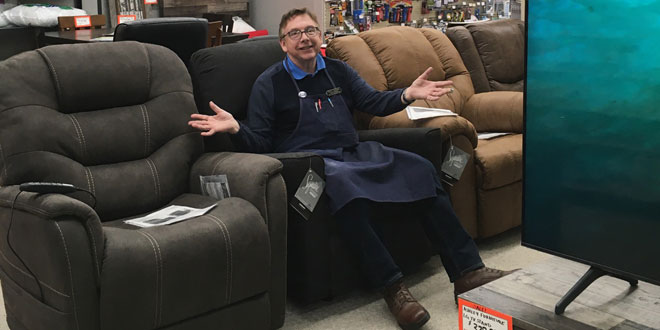You may have settled on a great idea for your next new niche category, but where do you source it? Oftentimes, you may need to go outside of your primary wholesaler, and the vendor you choose can make or break your success in a category, so you need to choose wisely. Here are some recommendations from two retailers who have built up a strong offering of niche categories: Mark McKee, general manager of the General Store in Spokane, Washington; and Mark Jackson, owner of Red Oak Hardware in Red Oak, Iowa.
Ask about terms. Very often, the terms a vendor offers will dictate if you place your first order. First determine your cost and the margin you’ll be able to make. Is it worth your time to sell? Just as important, ask about freight charges, lead time, dating options and minimum orders. While the margin may look good up front, other charges can erode that margin or tie up your cash flow while you sell through.
“You especially want to look for reasonable shipping and freight minimums on large items,” says Jackson. “If minimums are too high, then you won’t be able to be competitive because it will eat into your margins. It’s worth doing the work to find a supplier who will help you with that.”
Trust the numbers. If you’re the kind of retailer who likes to sell based on a feeling, do a gut check with the numbers. Vendors should have data that specify the best colors, sizes or quantities you need for an opening order.
“When making purchasing decisions, such as what quantity or color, I’ve found that it’s best to trust the numbers from the vendor rather than what you think it should be,” says McKee. “Let the data inform your decision.”
Be wary of back orders. After some bad experiences with back ordered products that didn’t arrive until more than a year later, McKee has made a general rule. “Don’t do back orders because you never know when you might get the product,” he says. “Instead, give the vendor a ship-by date, and tell them not to ship you anything after that date.”
Giving specific dates gives you more control over when you will get the requested product. When the item arrives, check the pricing to make sure it matches the terms you originally agreed upon.
Get their return policy. Choose a vendor with a return policy that will make life easy for you. In order to make your customer happy, you are going to have to accept the item back, so make sure your vendor is going to do the same, and not leave you hanging with a product you have to write off as a loss.
Use Google. You can find vendors at specialty trade shows, but sometimes the answers are right at your fingertips. “Finding a supplier isn’t always easy. But we’ve found a couple of vendors just through Google,” says Jackson. “While it might have been different a few years ago, nowadays, if you call up a wholesaler and tell them you’re a retail, then they’re eager to talk with you.”
 Hardware Retailing The Industry's Source for Insights and Information
Hardware Retailing The Industry's Source for Insights and Information







